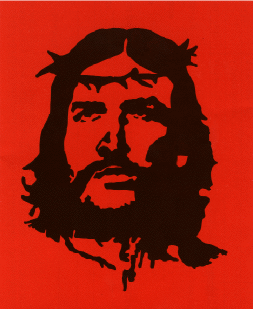Slave Catechisms and Liberating Liturgies
02-22-2017
By Kenji Kuramitsu
Q. Who gave you a master and a mistress?
A. God gave them to me.
Q. Who says that you must obey them?
A. God says that I must.
Q. What book tells you these things?
A. The Bible…
Q. What does God say about your work?
A. He that will not work shall not eat…
Q. What makes you lazy?
A. My wicked heart.
Q. How do you know your heart is wicked?
A. I feel it every day.
Q. Who teaches you so many wicked things?
A. The Devil.
Q. Must you let the Devil teach you?
A. No, I must not.
– Slave Catechism, 1854
Around McCormick, students who haven’t seen me for a while gently prod at me about my recent travels. It’s true that I have stepped outside the rhythm of our community a bit this past season: I had the chance to both sojourn to Cape Town and to traipse around Lutherland and other sites related to the Protestant Reformation. I stood on the stony shores of Robben island and not long thereafter passed by the iron gates of Buchenwald, soaking in waves of history and pain.
Both of these beautiful nations are drenched in the stories of their people, which often bear awful scars. This winter, I spent time in the three countries that most violently enshrined white supremacy into their national laws in the 20th century: the US, Germany, and South Africa. Critically visiting these sites of apartheid and Holocausts – and returning to the land of slavery and Jim Crow – was a chilling experience. Through it all, I processed with the Christians around me: how could people be so easily coerced into celebrating such harm? Why did the church so often go along with it?
One of the lessons I am walking away with is this: Christian oppressors will always use explicitly Christian language to justify their oppression. And Christians of conscience must resist this rhetoric not by backing out of the public square, but by listening and leaning in, vocally, with all our progressive commitments.
South African theologians applied Calvinist doctrines and a plethora of theological commitments to support the subjugation and ethnic cleansing of their nation’s black, coloured, and Indian inhabitants. The Third Reich emblazoned “Gott Mit Uns,” God with us, on the belt buckles of their soldiers, appropriating divinity to justify their quest for racialized imperial conquest. In Germany in particular, biblical language also bled into official use, as euphemism to mask violence. Secreting away their massacres of people with mental and physical disabilities, the government simply referred to this population as “useless eaters,” drawing from St. Paul’s often-repeated injunction that “he who does not work should not eat.”
Of course, we hardly need to look outside our own country’s borders for examples of Christians using the Bible and theology to justify atrocity. The North American empire has since its inception seamlessly utilized theology to undergird everything from chattel slavery and anti-miscegenation laws to the “divine right” of European settlers to exterminate Native Americans. Of note are the so-called “slave catechisms,” popular with many of our denominational forebears, which instructed enslaved African Americans that their call of Christian discipleship was to faithfully serve their white masters, who uniquely bore the mark of divinity.
Today, biblical injunctions are hurled light-years from their original contexts to brutalize queer and trans kids, prejudiced doctrines cheaply invoked to dominate women. We stamp the green bills of empire with God’s name while our politicians ask the divine to bless militarism and torture, anti-blackness and war. “Whether a child is born in the urban sprawl of Detroit or the wind-swept plains of Nebraska,” averred President Trump at his inauguration speech last month, “they are infused with the breath of life by the same Almighty Creator.”
One might observe that this “breath of life,” supposedly inherent to all humans, didn’t matter to our President when it was excised from Eric Garner’s lungs, as he shouted “I can’t breathe, I can’t breathe” during his public lynching by police. Nor did God’s holy breath seem particularly relevant to the power structure that Donald Trump represents when it rested in the bodies of Trayvon Martin or Tamir Rice, or among “the families of terrorists.”
I’m a child of postmodernism. On any given day, ask me how I’m feeling about metanarratives, and I’m likely to respond: “incredulous.” But if we were living measuredly in a post-Universal Truth era before, we’re certainly in a post-Facts age now. These days it can be hard to know what’s true (let alone Truth), particularly in the midst of all these falsehoods about our worth and our world. The tender histories of Christian domination I mentioned earlier have resulted in centuries-worth of spiritual muck and grime, casing our psyches with many layers of convolution and pain. Their Fake bulls and doctrines, their confident slurs, their troubling tweets and sinister confessions of our pathologies and propagandizing holy writ have sunk in deep, and we remain affected by these legacies today.
Empires around us continue to apply scripture and theology to sanction terror. Nevertheless, let us persist. Let us say, with confidence, “God does not stand for these things.” In the face of a dominating vision of divinely-ordered capital and servitude, we must issue forth new catechisms of human memory and mutuality. Let us pen liberating liturgies and prayers. Let us testify to one another’s human worth in this age of racial lies and distortions.
Then and now, silence will not do in the way of a response to white violence. No – we mustn’t let the devil teach us.


